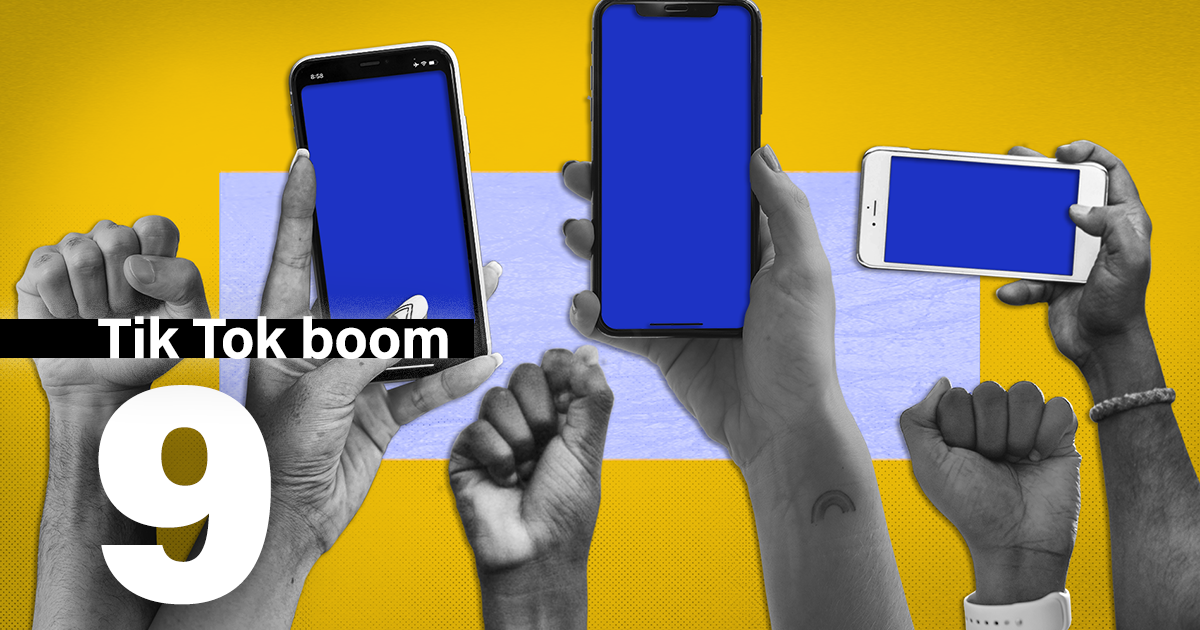ต่อจากบทความที่แล้ว Weapons of Mass Disruption อีกหนึ่งคำทำนายที่น่าสนใจของ Eurasia Group คือเรื่องการผุดกำเนิดขึ้นของ Gen Z และผลกระทบต่อโลกธุรกิจ สังคม การเมือง
เราอ่านบทความเรื่องคน Gen Z กันมาเยอะแล้ว แต่บทวิเคราะห์สั้นๆ แค่ไม่กี่ย่อหน้าของ Eurasia Group ช่วยให้เห็นภาพได้กระจ่างชัดมาก
คาแรกเตอร์ที่สำคัญของ Gen Z (เกิดยุคกลาง 90s ถึงต้น 2010s) คือเป็นคนเจเนเรชั่นแรกที่โตขึ้นมากับอินเทอร์เน็ต ไม่เคยเห็นว่าชีวิตที่ไม่มีอินเทอร์เน็ตนั้นหน้าตาเป็นอย่างไร และถือเป็นคนรุ่นแรกที่เป็น global generation เชื่อมความคิดกันกับคนประเทศอื่นในโลก (เคยเขียนไว้ในบทความ Global Village คือคนเจนนี้ตอนเย็นกลับบ้านไปดู Netflix เรื่องเดียวกันทั้งโลก เกิดประสบการณ์ร่วมแบบใหม่ที่ไม่เคยเกิดขึ้นมาก่อน)
Born between the mid-1990s and the early 2010s, Generation Z is the first with no experience of life without the internet. Digital devices and social media have connected its members across borders to create the first truly global generation.
พลังของ Gen Z คือความสามารถในการรวมกลุ่ม (organize) เคลื่อนไหว ต่อรอง ผ่านอินเทอร์เน็ต ตรงนี้จะสร้างแรงกดดันให้ทั้งภาคเอกชน (นายจ้าง) และภาคสังคม (การเมือง)
Gen Z has both the ability and the motivation to organize online to reshape corporate and public policy, making life harder for multinationals everywhere and disrupting politics with the click of a button.
ลองมาดูว่า Gen Z เติบโตขึ้นมาพร้อมกับเหตุการณ์ใดบ้าง ถ้าเอาเฉพาะวัยรุ่นอเมริกัน โตมาพร้อมกับอีเวนต์ใหญ่ๆ ยุค 2000s สารพัดอย่าง ชีวิตเต็มไปด้วยดราม่ามากมาย
Gen Z grew up as America’s post-Cold War dominance waned, revealing leadership failures at home and abroad through a series of formative historical events: the 2008 financial crisis, the Arab Spring and the Syrian civil war, Brexit, Trump’s election, the Black Lives Matter movement, the #MeToo reckoning, mass school shootings in the US, the Covid-19 pandemic, and now the Russia-Ukraine war.
ผลคือ Gen Z มีแนวโน้มที่จะหัวรุนแรง (radicalize) เมื่อเทียบกับเจนก่อนหน้า และมีความไม่เชื่อใจนักการเมืองหรือสถาบันทางการเมือง เพราะมีผลงานพิสูจน์ให้เห็นแล้วว่าเชื่อถือไม่ได้ ในอีกทางก็มีความคาดหวัง มีการเรียกร้องสูงกว่า
The result is a generation radicalized by the turbulent nature of its times and the failure of leaders and existing institutions to respond.
Gen Z has broader expectations, demands, and policy impulses than its predecessors, including a marked distrust of institutions and traditional channels of political change and economic achievement.
คน Gen Z มีความตระหนักในประเด็นทางสังคมสูงกว่ามาก ประเด็นเรื่องโครงสร้าง ความเหลื่อมล้ำ เพศ สีผิว ฯลฯ ซึ่งในประเทศไทยเราก็เห็นแนวโน้มแบบเดียวกัน
Not only is this generation the most racially and ethnically diverse in Western history, but its members are also more aware of systemic racism, gender issues, and economic inequality—and they accordingly lean heavily progressive.
ตอนนี้คน Gen Z เริ่มมีอายุเข้าสู่ตลาดแรงงานแล้ว น่าจะมีสัดส่วนราว 20% กว่าๆ ของตลาดแรงงานโลกแล้ว ตัวเลขจะเพิ่มเป็น 27% ในปี 2025 (น่าสนใจตามดูว่าของไทยประมาณเท่าไร)
This generation is now coming of age, entering the workforce and political life. Gen Z currently makes up 30% of the world’s population and is expected to comprise 27% of the global workforce by 2025.
ในแง่การเมือง คน Gen Z มีความสนใจกิจกรรมเคลื่อนไหว ออกมา “ลงถนน” เยอะกว่า รวมถึงออกมาเลือกตั้งเยอะกว่าด้วย (ในบริบทของสหรัฐ ของเมืองไทยยังไม่แน่ใจนัก) การที่ Gen Z มีหัวก้าวหน้ามากกว่า จึงลงคะแนนให้ Democrats ไปคานอำนาจพลัง Republican ได้อย่างสูสี (ไม่เกิด Big Red Wave ในการเลือกตั้งปี 2022 อย่างที่คาดกัน)
In the United States, Gen Z turned out in record numbers for the 2022 midterm elections
พลังของ Gen Z ทางการเมือง ไม่ได้มีผลเฉพาะคะแนนเลือกตั้ง แต่การเคลื่อนไหวผ่าน social นั้นทรงพลังกว่าด้วยซ้ำ
And while its power at the ballot box will only grow, Gen Z’s political influence already extends further owing to its outsized role in campaigns organized on social media.
ความต้องการของ Gen Z จะเรียกร้องนายจ้างภาคเอกชน (และรัฐ) ให้ต้องตอบสนองในเรื่องต่างๆ ตามที่คน Gen Z ต้องการ อันนี้ Eurasia เปรียบเทียบกับยุคที่ผู้หญิงเริ่มเข้ามาทำงานบริษัท ก็กดดันให้ต้องมีสวัสดิการเรื่องเด็กและครอบครัวมากขึ้น หรือคนยุค Millennium ก็สนใจเรื่องสุขภาพจิตของคนทำงานมากขึ้น
Generational transitions often require corporations and governments to make significant institutional, strategic, and policy changes.
When women entered the workforce during World War II, businesses were required to develop new workplace conditions better suited to childcare and family obligations.
millennials encouraged companies to think differently about issues such as mental health, leading to the adoption of new corporate services, benefits, and support systems.
ตอนนี้ยังไม่ค่อยชัดเจนนักว่า แรงกดดัน เสียงเรียกร้องของ Gen Z ต่อธุรกิจเอกชนมีอะไรบ้างที่ชัดๆ (ตั้งแต่เรื่องการจ้างงาน, career path, diversity) แต่ในภาพรวมแล้วจะสร้างแรงกดดันอย่างสูงต่อภาคธุรกิจให้ต้องปรับตัวตาม
Gen Z is redefining the workplace by pushing companies to incorporate fundamental changes in how they recruit, organize, retain, and develop talent; embrace new career paths and opportunities; foster genuine diversity and inclusion; and reevaluate their social, political, and environmental impact.
ที่น่าสนใจคือ ในทางการเมือง Gen Z จะกดดันให้บริษัทเอกชนต้อง “แสดงออกจุดยืนทางการเมือง” ให้ชัดเจน จากเดิมที่พยายามไม่ยุ่งการเมือง หลีกเลี่ยงไม่พูดถึง แต่ความต้องการของพนักงาน Gen Z จะบีบให้บริษัทต้องแสดงออกท่าทีมากขึ้น ไม่อย่างนั้นก็ไม่มี Gen Z คนไหนอยากไปทำงานด้วยในระยะยาว
As a result, corporations will feel unprecedented pressure to take sides in political and geopolitical debates, whether they like it or not.

